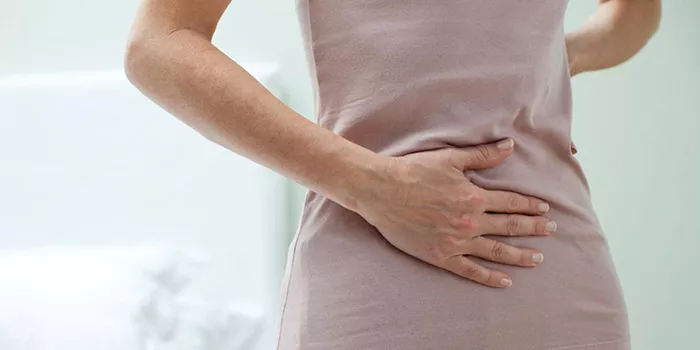The desire to become a parent can be a powerful motivator, but age is a significant factor that can impact fertility. Many women in their late 30s and early 40s are choosing to start or expand their families. Understanding how age affects fertility and the challenges associated with getting pregnant at 38 is crucial for anyone considering pregnancy at this stage of life. This article provides a detailed examination of fertility issues related to age, the challenges faced, and potential strategies to improve the chances of conception.
Introduction to Fertility and Age
1. Understanding Fertility
Fertility is the ability to conceive and carry a pregnancy to term. It involves several factors, including the health of the reproductive organs, the quality of eggs, and the frequency and timing of intercourse. As women age, their fertility naturally declines due to changes in reproductive health.
2. The Impact of Age on Fertility
Age is one of the most significant factors affecting female fertility. Women are born with a finite number of eggs, and the quantity and quality of these eggs decline over time. By the age of 38, several changes occur that can affect the ability to conceive.
The Challenges of Getting Pregnant at 38
1. Decline in Egg Quality
Decreased Egg Quantity
By age 38, the number of eggs in a woman’s ovaries has significantly decreased. This reduction in egg quantity impacts the chances of successful conception. Fewer eggs mean fewer opportunities for fertilization and pregnancy.
Lower Egg Quality
In addition to a decrease in quantity, the quality of eggs also declines with age. Older eggs are more likely to have chromosomal abnormalities, which can lead to difficulties with fertilization, implantation, and an increased risk of miscarriage.
2. Increased Risk of Miscarriage
Miscarriage Rates
The risk of miscarriage increases with age. Women at 38 are more likely to experience pregnancy loss compared to younger women. This is often due to the higher incidence of chromosomal abnormalities in older eggs.
Genetic Factors
Genetic factors play a role in the increased risk of miscarriage. As eggs age, the likelihood of genetic abnormalities rises, which can affect the viability of the pregnancy.
3. Changes in Hormonal Levels
Hormonal Fluctuations
Hormonal changes occur as women age, affecting the menstrual cycle and ovulation. Irregular cycles and hormonal imbalances can make it more challenging to conceive and track ovulation accurately.
Decreased Fertility Hormones
Levels of fertility hormones such as follicle-stimulating hormone (FSH) and luteinizing hormone (LH) can increase with age, indicating a decline in ovarian reserve and fertility potential.
4. Uterine and Reproductive Health
Uterine Changes
The health of the uterus also plays a role in fertility. Conditions such as fibroids, endometriosis, or adenomyosis can affect the uterine environment and make it more difficult for an embryo to implant and develop.
Fallopian Tube Health
The health of the fallopian tubes is crucial for conception. Tubal factor infertility, where the fallopian tubes are blocked or damaged, can be more common with age and can affect the ability to conceive naturally.
Strategies to Improve Fertility at 38
1. Preconception Health
Lifestyle Changes
Adopting a healthy lifestyle can improve fertility. Key lifestyle changes include:
Balanced Diet: Eat a diet rich in fruits, vegetables, whole grains, and lean proteins. A healthy diet supports overall reproductive health.
Regular Exercise: Engage in regular, moderate exercise to maintain a healthy weight and reduce stress.
Avoiding Harmful Substances: Avoid smoking, excessive alcohol consumption, and recreational drugs, which can negatively impact fertility.
Medical Evaluation
Undergoing a preconception medical evaluation can help identify any underlying health issues that may affect fertility. This evaluation may include:
Blood Tests: To assess hormone levels and overall reproductive health.
Pelvic Ultrasound: To evaluate the health of the uterus and ovaries.
2. Fertility Treatments
Assisted Reproductive Technologies (ART)
For women facing challenges with conception, assisted reproductive technologies can be beneficial. These may include:
Intrauterine Insemination (IUI): A procedure where sperm is directly inserted into the uterus around the time of ovulation.
In Vitro Fertilization (IVF): A process where eggs are retrieved, fertilized outside the body, and the resulting embryos are implanted into the uterus.
Egg Donation
For women with significantly reduced egg quality or quantity, egg donation may be an option. Donor eggs are fertilized and then transferred into the woman’s uterus.
see also: How Do You Know if Your Uterus Is Healthy?
3. Monitoring and Tracking
Ovulation Tracking
Monitoring ovulation is essential for maximizing the chances of conception. Methods to track ovulation include:
Ovulation Predictor Kits (OPKs): These kits detect the surge in luteinizing hormone (LH) that indicates ovulation.
Basal Body Temperature (BBT): Tracking BBT can help identify ovulation based on temperature changes.
Fertility Apps
Using fertility apps to track menstrual cycles and ovulation can provide valuable insights and help plan intercourse around the fertile window.
4. Consulting a Fertility Specialist
Seeking Expert Advice
If you are struggling to conceive at 38, consulting a fertility specialist can provide personalized guidance and treatment options. A specialist can:
Conduct Comprehensive Assessments: To evaluate reproductive health and identify potential issues.
Develop a Tailored Treatment Plan: Based on individual needs and circumstances.
Emotional Support
Fertility challenges can be emotionally taxing. Seeking support from counselors or support groups can help manage stress and provide emotional support throughout the journey.
Conclusion
Getting pregnant at 38 presents unique challenges due to age-related declines in egg quality and quantity, increased risk of miscarriage, and hormonal changes. However, understanding these challenges and taking proactive steps can enhance fertility and improve the chances of a successful pregnancy.
By adopting a healthy lifestyle, exploring fertility treatments, and seeking expert medical advice, women can navigate the complexities of conception at an older age. With the right strategies and support, achieving pregnancy at 38 is possible and can lead to a fulfilling journey toward parenthood.
Related topics:

























